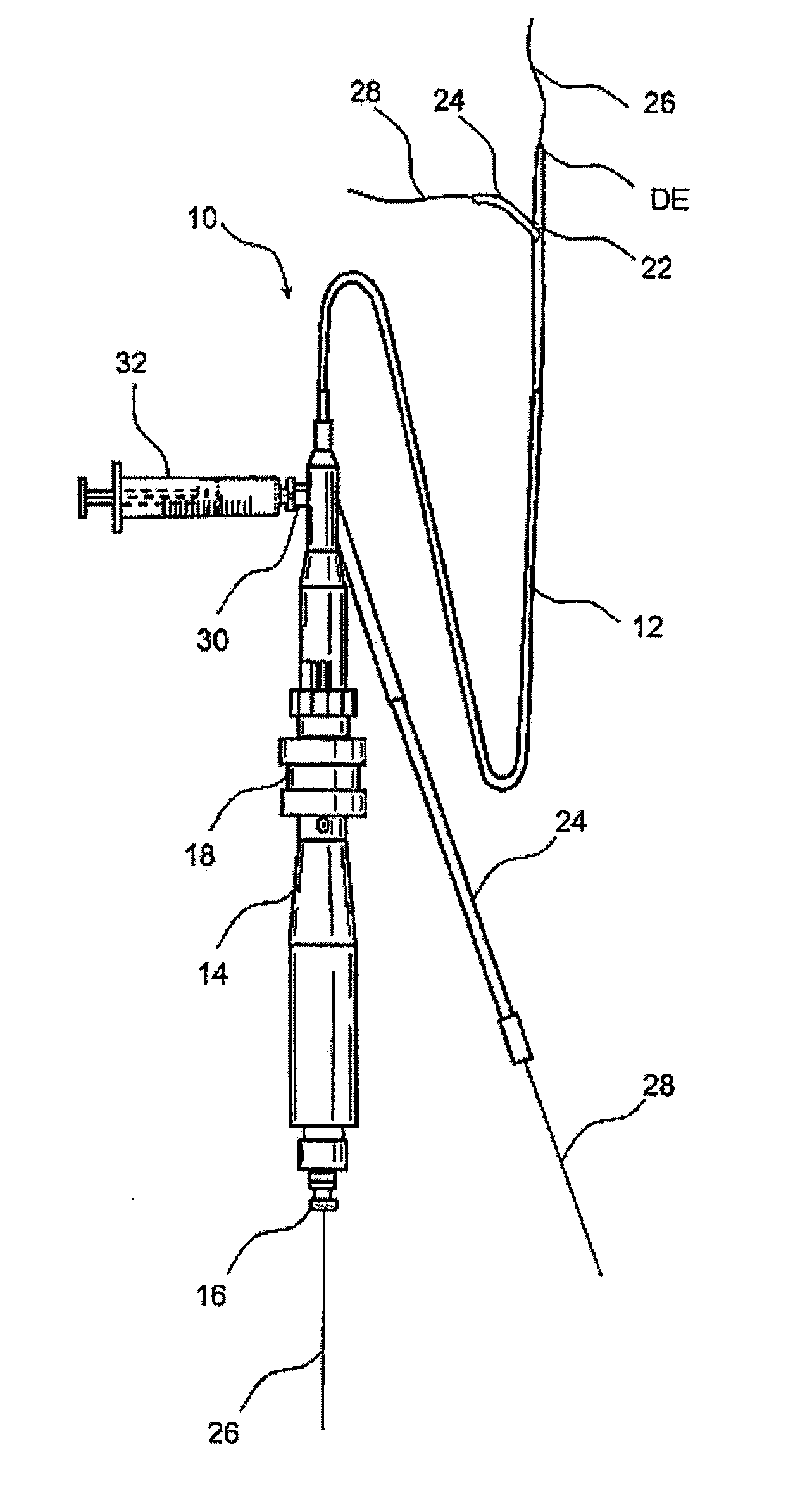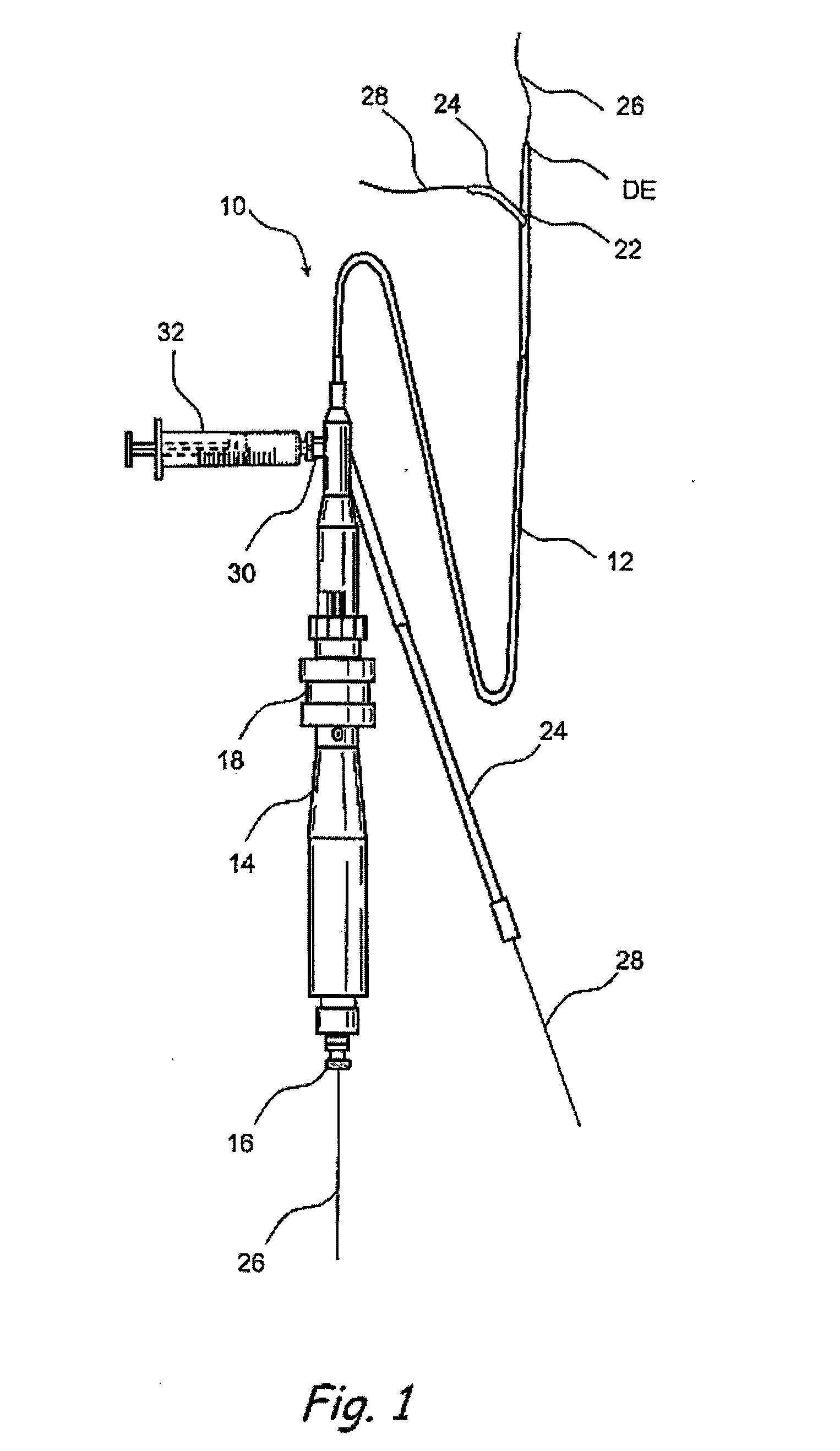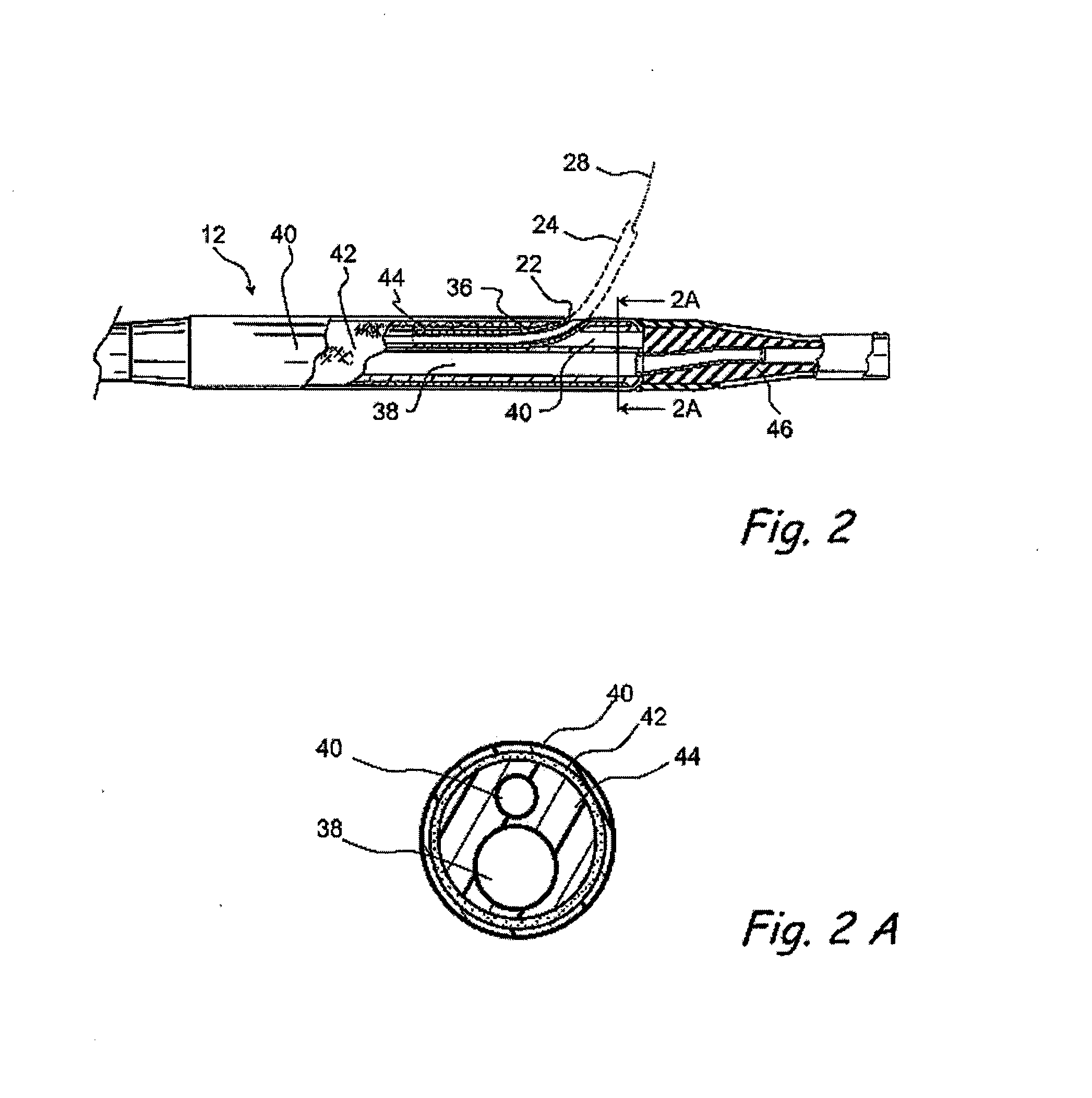High Torque, Low Profile Catheters and Methods for Transluminal Interventions
a catheter and low-profile technology, applied in the field of catheters, to achieve the effect of increasing the likelihood of lateral deploymen
- Summary
- Abstract
- Description
- Claims
- Application Information
AI Technical Summary
Benefits of technology
Problems solved by technology
Method used
Image
Examples
Embodiment Construction
[0024]The following detailed description, the accompanying drawings are intended to describe some, but not necessarily all, examples or embodiments of the invention. The contents of this detailed description and accompanying drawings do not limit the scope of the invention in any way.
[0025]FIGS. 1-2B show one example of a catheter device 10 of the present invention. This catheter device 10 comprises an elongate catheter body 12 (e.g., a catheter shaft) having an atraumatic distal tip member 46 on its distal end DE and a handpiece 14 on its proximal end. As shown specifically in FIG. 2B, the catheter body 12 comprises a core member 44, a braid layer 42 surrounding the core member 44 and an outer layer 40 surrounding the braid layer 42. These components 40, 42, 44 of the catheter body 12 may be formed of materials that provide the desired strength and torque transmission while minimizing the overall diameter of the catheter body 12. For example, the core member 44 may comprise machine...
PUM
| Property | Measurement | Unit |
|---|---|---|
| outer diameter | aaaaa | aaaaa |
| outer diameter | aaaaa | aaaaa |
| tip angle | aaaaa | aaaaa |
Abstract
Description
Claims
Application Information
 Login to View More
Login to View More - R&D
- Intellectual Property
- Life Sciences
- Materials
- Tech Scout
- Unparalleled Data Quality
- Higher Quality Content
- 60% Fewer Hallucinations
Browse by: Latest US Patents, China's latest patents, Technical Efficacy Thesaurus, Application Domain, Technology Topic, Popular Technical Reports.
© 2025 PatSnap. All rights reserved.Legal|Privacy policy|Modern Slavery Act Transparency Statement|Sitemap|About US| Contact US: help@patsnap.com



